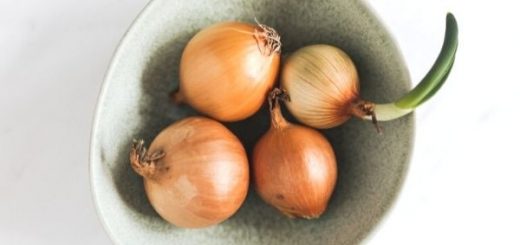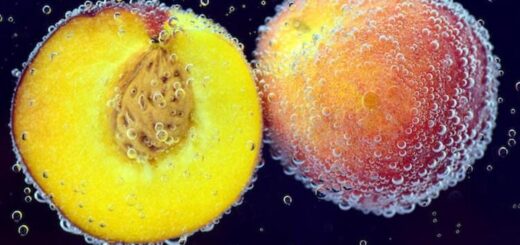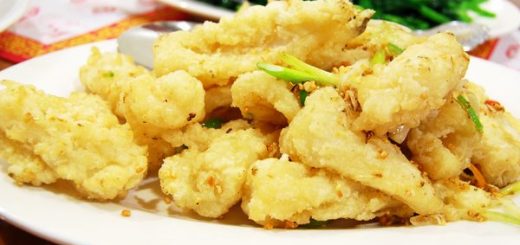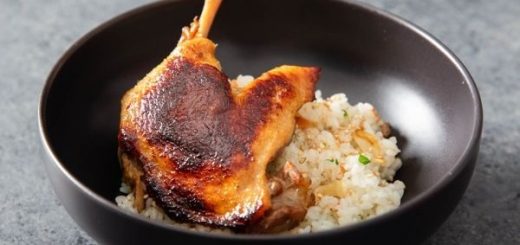Are kidney beans healthy?

Kidney beans are very popular, but is this protein-rich bean really that healthy? If so, why and can you eat it if you want to lose weight? Read on to discover the answers to these questions.
Are kidney beans healthy?
It is not without reason that kidney beans have been eaten worldwide for centuries. So, yes: they are very healthy and nutritious. They are packed with vitamins, minerals, fiber and proteins.
Are you curious about what makes kidney beans healthy? And do you want to know if you can also eat them if you want to lose weight? Then read on quickly.
What are kidney beans?
Kidney beans (Phaseolus vulgaris) are among the most popular beans worldwide. Like white beans, they are the edible seeds of the leguminous plant belonging to the legume family.
These seeds are actually legumes just like peanuts, which is why the kidney bean is not officially considered a ‘vegetable’. They also contain different nutrients than vegetables and more calories than vegetables.
Compared to white beans, kidney beans have a slightly less firm texture. They have a mild and creamy taste. Within the category of kidney beans there are different varieties, with variations in shape and structure.
For example, there are kidney beans with large, elongated seeds and others with small, round, ball-shaped seeds. Fresh kidney beans with pods are usually available in September.
During the rest of the year, kidney beans are available in cans and glass jars. They are widely used in dishes such as rice dishes, brown bean soup and chili con carne.
RESUME
Kidney beans are edible seeds of the leguminous plant. They are not actually beans, but legumes.
What is the nutritional value of kidney beans?
Are you wondering: ‘What exactly do I get from kidney beans?’ Below you can read what nutritional value a serving spoon (60 grams) of prepared kidney beans contains.
- Energy: 72 kcal
- Fat: 0.4 grams
-Of which saturated: 0.1 grams - Carbohydrates: 10.8 grams
– Of which sugars: 0.5 grams - Fiber: 4.7 grams
- Protein: 3.9 grams
- Salt: 0.18 grams
What nutrients do kidney beans contain?
Now you know what the nutritional value of kidney beans is. But which nutrients exactly do you get with a serving spoon of kidney beans (60 grams)? You can read it below.
| Nutrient | Quantity | Recommended Daily Allowance (RDA) |
| Potassium | 185 mg | 3500 mg |
| Calcium | 26 mg | Men and women 18-24 years: 1000 mg Men 25-69 years and women 25-49 years 950 mg Women 60-69 years 1100 mg |
| Magnesium | 24 mg | Men 350 mg Women 300 mg |
| Iron | 1.4mg | Men and women who do not menstruate 11 g Women who do menstruate 16 mg* |
| Selenium | 1 µg | 70 µg |
| Zinc | 0.4 µg | Men (>18 years) 9 ug Women (>18 years) 7 ug Pregnant women 9.1 ug Breastfeeding women 11 ug |
| Vitamin A | 0 ug | Men 800 μg Women 680 μg |
| Vitamin D | 0 µg | 10 μg >70 years People with tanned skin People who rarely go outside and/or cover their hands and face 20 μg |
| Vitamin E | 0.1mg | Men 13 mg Women 11 mg |
| Thiamine (vitamin B1) | 0.07 mg | 0.1mg |
| Riboflavin (vitamin B2) | 0.02mg | 1.6mg |
| VItamine B6 | 0.01 mg | Men and women 1.5 mg Men >50 years 1.8 mg |
| Folic acid | 16 μg | 300 μg Pregnant and lactating women 400 μg |
| Vitamin B12 | 0 µg | 2.8 μg |
| Niacin | 0.2mg | 16 mg |
| Vitamin C | 0 mg | 75 mg |
| Iodine | 0 µg | 150 μg Pregnant and/or lactating women 200 μg. |
| Phosphorus | 68mg [2] | 550 mg (>18 years) [3] |
What are the health benefits of kidney beans?
Why are those kidney beans so healthy? Well, there isn’t one reason for that, but there are several reasons. We have listed the most important ones for you.
Packed with nutrients
Kidney beans are a rich source of iron, an essential mineral for the production of red blood cells and an important function of our immune system.
Just one tablespoon of it already contains 1.4 mg of iron. In addition, kidney beans contain various B vitamins, such as thiamine, which is important for a good energy supply.
Packed with proteins
With 60 grams of kidney beans you get 3.9 grams of protein, which makes them an excellent source of protein. It is no coincidence that it is popular among vegetarians and vegans. Together with other legumes, such as chickpeas and kidney beans, the brown rascals are an important meat substitute.
The combination with iron and thiamine makes it a good meat substitute, because these nutrients are very important for vegetarians and vegans. For example, replace minced meat in a Mexican wrap with brown beans or make a mixed Mexican bowl with brown beans and kidney beans.
RESUME
Kidney beans are rich in healthy nutrients, including vitamins and minerals. Kidney beans are a healthy alternative source to meat, thanks to their high iron and protein content.
Good source of fiber
Kidney beans also contribute to your fiber intake. Fiber has many health benefits, such as promoting healthy bowel movements and feeding beneficial intestinal bacteria, which contributes to healthy intestinal flora.
In addition, fiber can provide a longer feeling of satiety, which can help with weight loss.
RESUME
Kidney beans are full of fiber, which is good for your bowel movements and can help you lose weight.
Are kidney beans from a jar or can healthy?
Unfortunately, it is not easy to answer this, because it depends on the additions to the jar or can. Sometimes these products contain large amounts of sugar or salt, which makes them a lot less healthy.
Nowadays you can also buy kidney beans from stand-up pouches, which often contain fewer added substances.
The healthiest option remains dried kidney beans. The only disadvantage is that they require more preparation, such as soaking and cooking longer.
Please note: if you do not soak and cook dried legumes long enough, too much of the lectin will remain. This is a naturally toxic substance in legumes if you ingest too many.
Are kidney beans good for weight loss?
Eating kidney beans can be positive for weight loss because it contains a lot of protein. This can help you feel full and reduce your calorie intake. The fibers also contribute to a feeling of satiety.
In addition, proteins can help you lose less muscle mass while losing weight. Losing muscle mass can lead to burning fewer calories, which can slow weight loss. In addition, the beans contain relatively few calories, making them a good fit for a diet.
RESUME
Kidney beans can help you lose weight because of their proteins, because they keep you feeling full for longer.
Do kidney beans fit into a low-carb diet?
Now you know that kidney beans can help you lose weight. But what about the low-carb diet? Well, whether brown beans fit into the low-carb diet depends on the type of low-carb diet you follow.
One diet is stricter than the other. For example, in some variants of this diet you are not allowed to eat legumes at all, such as kidney beans, because they contain a lot of carbohydrates.
Are you vegetarian or vegan? Then legumes are an important source of proteins. It is better to look at other options to consume fewer carbohydrates.
RESUME
Whether you can eat kidney beans depends on the type of low-carb diet you follow.
When are kidney beans not healthy?
Although kidney beans are very healthy, there are people who should be careful when eating these beans. As is known, kidney beans often cause gas, which most people only experience slightly.
People with irritable bowel syndrome (IBS) may be more bothered by kidney beans. IBS is a condition in which people experience symptoms from certain carbohydrates (FODMAPs).
For example, kidney beans contain galactans, to which some people with IBS are intolerant (hypersensitive). How quickly someone suffers from IBS varies per person.
RESUME
People with IBS may experience additional problems with kidney beans because they contain certain carbohydrates.
Are brown or white beans healthier?
Which of these two is actually healthier? Both beans have different health benefits, so one bean is not necessarily healthier than the other.
For example, brown beans contain slightly more magnesium and protein, while white beans contain more fiber, iron and folic acid.
Which variant is healthiest depends on how you combine and use them. White beans are often sold in tomato sauce, which can be less healthy due to these additives.
RESUME
Both beans are healthy. Brown beans contain slightly more protein, but white beans contain more fiber.
How often and when to eat kidney beans?
It is healthy not to eat meat every day. This means, among other things, that you have a lower risk of cardiovascular disease.
Even if you eat meat every day, eating legumes can have a health benefit. We therefore recommend eating legumes, such as kidney beans, at least once a week.
But these could also be chickpeas or kidney beans. Or combine different legumes in a wrap, Mexican bowl or with quinoa. You can also eat legumes during lunch, for example in a salad. Or use them in a savory muffin, for example.
Conclusion
Kidney beans are absolutely healthy, packed with protein, fiber and nutrients. If you follow a low-carb diet or are sensitive to certain substances, such as galactans, it is important to keep an eye on portion size. This way you can still enjoy these nutritious and delicious beans in moderation.











